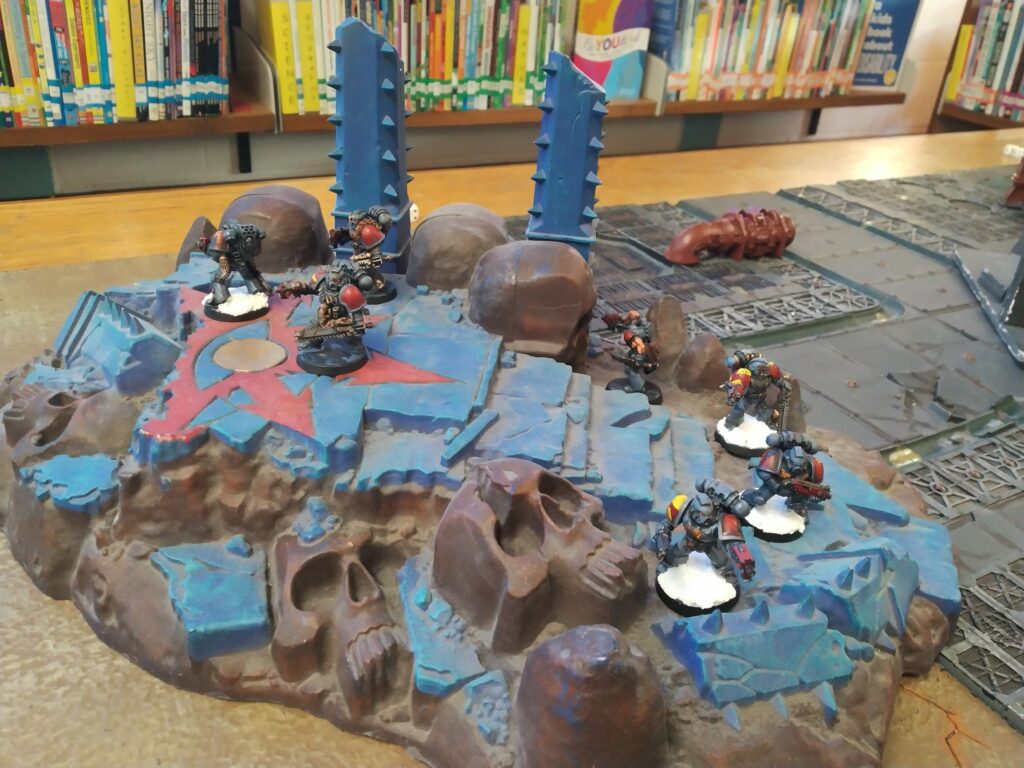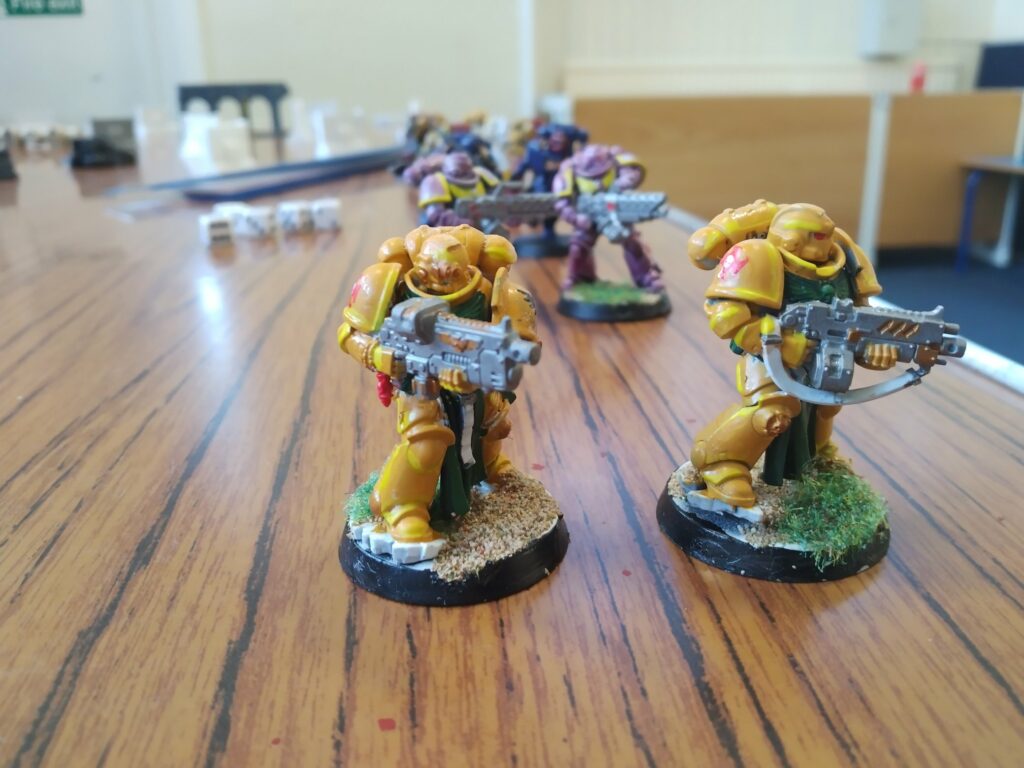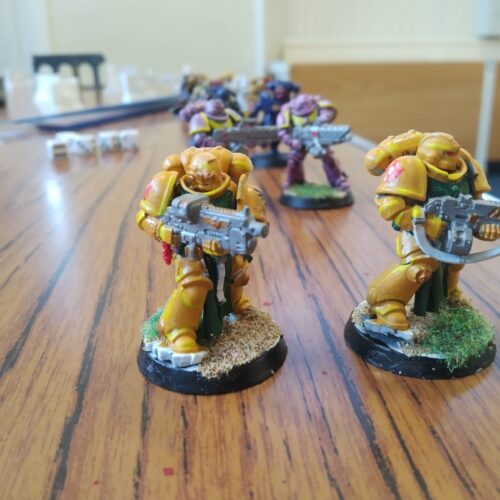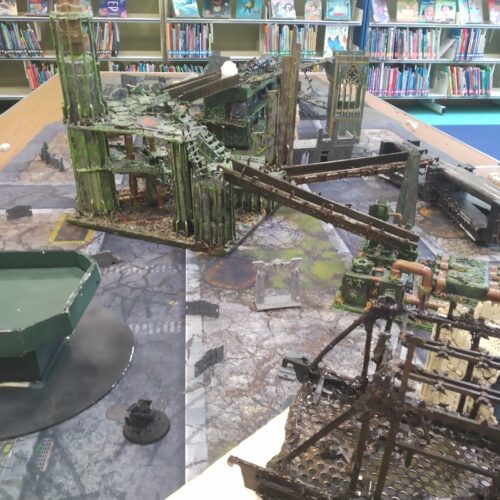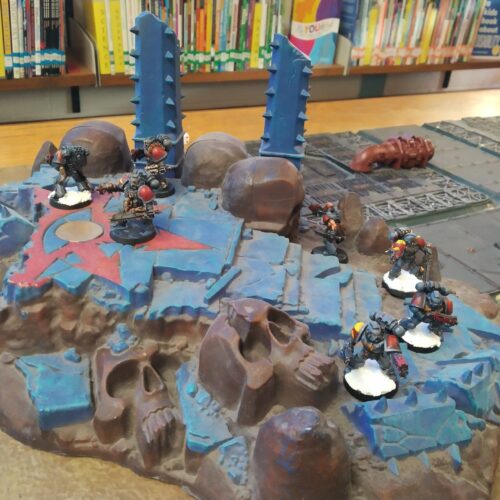Tabletop Game Clubs: D and D in a Mental Health Setting
Category: Blog, Professional Development
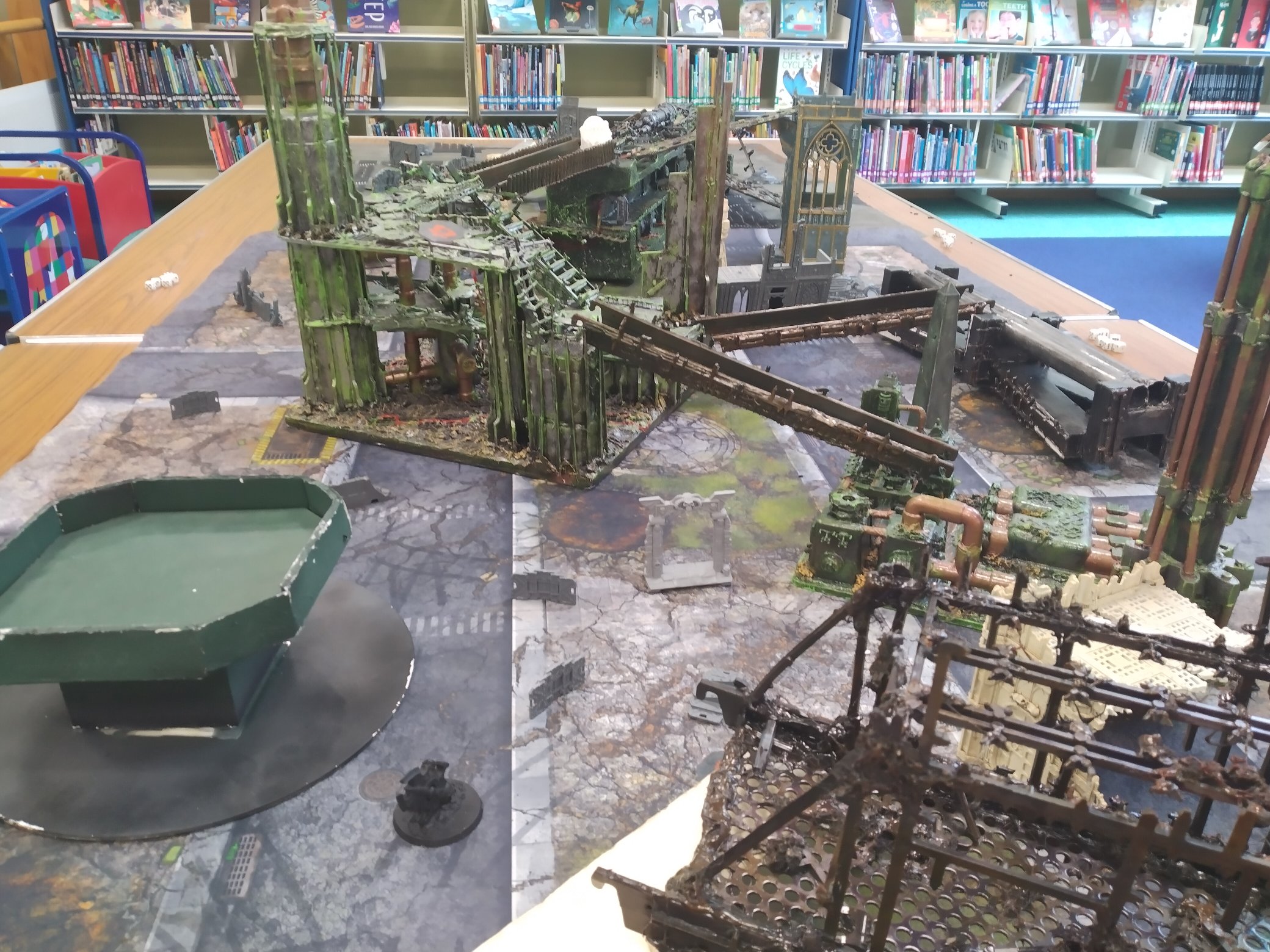
Guest Writer: David Michie
It is no secret that the Dundee Library Tabletop Games clubs have been vastly more successful with the kids than I could have ever planned for. Presently we have over 13 clubs running in various different areas of Dundee.
So much so that, unfortunately, although we have a waiting list and quite a few enquiries from adults for various games and D and D sessions, it’s unfeasible for me to run any adult sessions at the moment, or even start any more kids clubs.
All of my time is taken up with planning and running the kids clubs, however this doesn’t need to be the end of the club’s expansion. To run a club properly it takes many hours of background preparation and planning.
We have staff who can, with little to no training, run a successful D and D session for adults, and bring people into the Libraries who would never have attended them otherwise.
Our staff tell stories to young kids in the Rhymetime story time. Roleplay games are just storytelling and an extension of that group, just older.
It doesn’t matter how we get them in, just that we get people through the doors. As I always say: we are in a numbers game, and this is an easy way to win the game. In fact, it seems like we can rig the game in our favour.
Mental health is a must in today’s society, and also we have to socialise kids and adults after the stress which was lockdown and Covid.
Libraries are well placed to achieve this; the kids and adults feel safe here. We are a friendly, warm and welcoming environment.
However, we could do more to foster a sense of community and friendship, and I feel that the games that run in the Kids Clubs have achieved this.
I have seen kids who can’t talk to other people come out of their shell and engage with others, through the medium of the games, and then attend other clubs in our libraries.
This is a win for us in many different areas: mental health, socialising, low cost of both materials and staff time.
You can download ready made adventures from online sites and run with them without too many problems and input.
Anything that attracts people into libraries cheaply in this day of financial cuts has to be researched and looked into further.
Excerpt below taken from Baker, Ian S. et al. “Role-play Games (RPGs) for Mental Health (Why Not?): Roll for Initiative” in the International Journal of Mental Health and Addiction (2022).
Increasing Demand for Role-playing Games (RPGs) During the Pandemic
Role-playing games emerged from wargames which, in turn, originated in ancient strategy games, particularly chess. Role-playing games are unlike wargames in that they are co-operative in nature and the operational level is on the individual rather than groups, units, battalions, etc., and the interactions can be complex, going beyond combat.
A typical role-playing game involves a “Dungeon Master” (DM, or “Games Master”) who describes what the other players can see and experience, outlines the nature of the imaginary world, and controls the non-player characters (NPCs) that the players interact with.
The DM also outlines the missions, tasks, problems, and challenges the players face, but the decisions they make can be relatively open-ended, resulting in a complex and multi-layered experience. The players each control one (occasionally more) character that has set characteristics and abilities that are determined by a numerical value, and this is supplemented by equipment that may help their abilities.
These characteristics and abilities are typically constructed via set formats, and when a player wishes their character to perform an action (e.g. climb a wall, swing a sword, cast a spell, persuade someone), they have to roll a die and add or subtract values based upon how good their character is at that task; typically a higher roll will indicate success, and the DM will describe the consequences of the success or failure of the die roll.
This creates a rich, narrative-based interaction between DM and players that is akin to modern storytelling; the players are not playing “against” the DM, but rather all participants are joined together in a shared story experience.
This can be face-to-face or online, and there are dedicated online systems (e.g. D&D Beyond, Roll20) for playing such games. Much of the experience relies upon the imaginations of the participants, but this can be augmented with the use of miniatures that represent the players and the NPCs, and two-dimensional maps (with or without three-dimensional terrain) to help make the experience more immersive.
In the online environment, this has been extended to players being only able to see the parts of their environment that their characters themselves can see, resulting in surprises for the incautious (or unlucky) player.
Due to the plethora of games available today, the setting of a particular role-playing game can be varied, from fantasy to science-fiction, from history to horror. The first role-playing game (known as “Generation 1”) available commercially was Dungeons & Dragons (or D&D/DnD), designed by Gary Gygax and Dave Areson and published in 1974.
Even with controversies, it remains popular. As of 2014, it is now in its fifth edition, and it has seen a tremendous growth in recent years, with Wizards of the Coast (a division of Hasbro which owns the game) estimating over 50 million people had played the game, and their revenue increased 24% in 2020 to over $816 million.
Part of this surge in growth has been as a reaction to the COVID-19 pandemic, with Fandom (the owners of D&D Beyond, an online platform where D&D can be played) reporting their number of subscribers doubling between 2019 and 2020, and individuals reporting that playing D&D has supported their mental health during the pandemic (Skipwith, 2021).
Although there are a multitude of RPGs available (including highly related ones, such as Pathfinder) and the conclusions drawn here could apply to most of them, due to its historical status in the community and increased popularity during the pandemic.
Impact of Role-playing Games on Mental Health
D&D has a long history with mental health. In its early years, it was incorrectly linked by the mainstream media to teenage delinquency and immorality, without any demonstrable causal relationship… creat[ing] a stigma associated with D&D that persists at times today (Kelly, 2019; Sidhu & Carter, 2020; Polkinghorne et al., 2021).
Role-play in clinical practice is reported to be associated with higher levels of reflection, empathy, insights about the client, and peer learning (Rønning & Bjørkly, 2019). By simulating a real situation, participants are more able to appreciate people in the context, leading to better understanding (Caltabiano et al., 2018).
RPGs are sometimes used as therapeutic tools in psychodrama and drama therapy; psychodrama therapy involves patients under supervision dramatising a number of scenes such as specific happenings from the past, often with help from a group, enabling them to reflect on and explore alternative ways of dealing with them (Kedem-Tahar & Felix-Kellermann 1996).
Drama therapy has more of an emphasis on spontaneity and creativity and employs playful approaches. More specifically, it is a systematic and controlled approach that uses dramatic action to explore emotional issues (Kedem-Tahar & Felix-Kellermann 1996).
Therefore, appropriate introduction to such games is essential, ideally by experienced and compassionate players.
Finding new ways to improve mental health is important. There’s a growing body of research that underlines the way D&D and other role-playing games improve mental health outcomes: studies show these games can improve participants’ empathy, strategic thinking, moral development, and sense of social connection.
“Playing D&D and having the experience of [being a dungeon master] for multiple years, you get a certain confidence talking with people,” one DM said. “[My] communication has definitely grown through that. Before I started, I would not [have been] able to handle compromise or group dynamics nearly as well.”
“And it could change yours if you just give it a try. It might be weird at first doing voices and stuff. But after a while you feel weird not doing a silly voice.”
“The kids identify with the group and can do things through their character they would never be able to do in real life. I know that adults can have problems voicing and reaching out, however through the games they can try out new scenarios and it definitely helps with mental health.”
Some of the possible mental health benefits of D&D are:
- Improved social skills with peers
- Increased self-esteem and self-confidence
- Ability to express yourself and your needs assertively
- Improved impulse control and practice with turn-taking
- Stronger creative thinking and problem-solving skills
If we can increase the number of people coming into use libraries without spending too much money then why not try to do it.
Related Links
-
Role-play Games (RPGs) for Mental Health (Why Not?): Roll for Initiative
National Library of Medicine article discussing mental health challenges associated with COVID-19 and how table top role playing games, such as Dungeons and Dragons (D and D), could be used to combat those issues.
